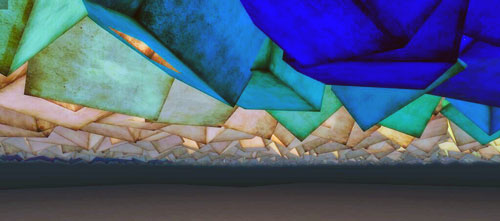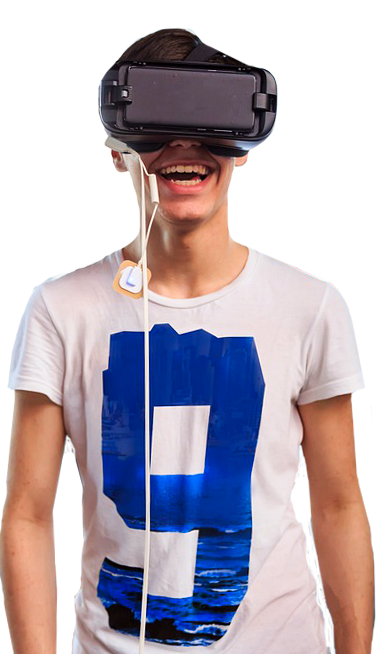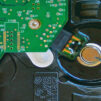
Company executives can now test whether employees put out the fire at a factory or fix a gas leak without leaving the office. Corporations use virtual reality technologies to simulate and practice emergencies. But VR can also be used to develop employees’ soft skills. And as a result, you can save a lot of money.
Testing Hypotheses
Virtual reality technology is a computer-generated simulation of a natural environment or situation taken from reality. Although virtual reality has not yet become a “mass technology,” it no longer seems like science fiction. More and more people are curious about it. They can even distinguish it from AR – augmented reality technology, which allows us to impose computer-generated layers on top of the surrounding reality. By the way, in addition to VR and AR, there is also mixed, or hybrid, reality.
Unreal Shopping
Augmented Reality & Virtual Reality Market for the retail industry is expected to reach USD 2,094.08 billion by 2027, witnessing market growth at a rate of 68.5% in the forecast period of 2020 to 2027. Despite the optimistic forecast, AR/VR-technology will have a hard road to become an integral part of the business environment. Nevertheless, major retailers are increasingly using new technologies to provide visual and sensory immersions to their users. Such world brands as Gucci, L’Oreal, MAC, Nike, and many others have already implemented them.
Practice in Virtual Field

Digi-Capital’s forecast is even more optimistic. They estimate that the VR/AR market will show explosive growth in the next year and exceed $108 billion by 2021.
VR technologies are mostly used in the production industry. They allow people to train expensive equipment and practice specific behavior patterns, for instance, in emergencies. Field training is regularly conducted in large technological sectors. Still, it’s impossible to reproduce situations fully because no one will permit training newcomers on expensive equipment. At the same time, in VR, it’s possible and even economically beneficial for companies.
VR in Oil & Gas Industry
VR is also used in the fuel and energy complex. Oil and gas companies work with complex devices, including generators and compressors, for drilling activities. Because these machines are under high pressure, their condition must be continuously monitored – malfunctions can lead to severe consequences. VR technology allows mechanical engineers to monitor equipment without a physical presence and diagnoses failures quickly and accurately.
Handy Not Only for Gamers
In addition to hard skills, virtual reality can also be used to develop soft skills. For example, the company TaleSpin is developing virtual avatars that can train employees in different departments. In particular, the developers created a virtual employee Barry. The manager’s task is to fire him. Depending on how the manager communicates, Barry can cry, get angry, or calmly accept his dismissal’s news. If the manager brings the virtual worker to tears, they are given another attempt to fire him. Virtual workers train real employees so that managers can handle these situations readily in everyday life.
VR Promotes Popularization of Various Fields

Lack of labor is one of the main obstacles to economic growth. Young people mostly want to work in startups, in design, or marketing. This generation’s appetite for digital technology reflects poorly on economics. So, companies in less attractive sectors are also turning to virtual reality to attract future potential candidates. In France, for example, authorities offer students and schoolchildren to try on VR glasses to understand how a robotics engineer, aircraft welder, or computer developer works.
VR: Feel It With Your Skin
A person immersed in a virtual environment is usually imagined wearing special glasses or a helmet. However, the developers go further and come up with new equipment. Belarusian Teslasuit specialists released a tactile suit with “tactile feedback.” The tight skin suit has built-in electrodes, so it not only transports a person into the virtual world but also allows them to feel different vibrations, simulates burns, and trauma. Such a suit can be useful in the training of lifeguards or medics.
Possible Threats
At the same time, lawyers are worried about the rapid spread of VR and AR: the more accessible they become, the more cyber crimes they provoke. In debates over the security of VR/AR technology, the subject matter can be software or devices for creating VR. Intellectual property rules apply not only in the real world but also in the virtual world.
The international market for virtual and augmented reality software will increase to $35 billion by 2025. Lawyers are concerned about the security of this technology because cyber crimes are becoming more frequent.
Futurologist’s View
VR, along with the automation of business processes and the spread of artificial intelligence, are designing our future. American inventor and futurist Ray Kurzweil predicts that as early as the 2030s, virtual reality will feel entirely like the real thing and abolish physical workspaces. This way, we will be able to become cyborgs through nanotechnology.





